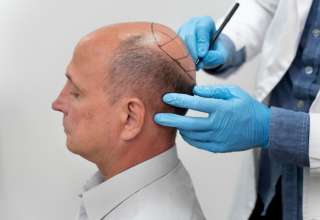At some point, most of us have experienced the pressure that excess weight can bring. Sometimes weight gain in a certain area can be a symptom of a larger condition that could be affecting your health.
Do you have a fat deposit that is possibly causing health issues? If so, you may be wondering what you should do next.
In this post, we’ll go over several facts concerning fat in your body that you might not have known. Read on to start learning.
1. Understanding the Different Types of Fat
Generally, there are two categories of fat – subcutaneous and visceral. Subcutaneous fat is made up of tiny droplets that are found in the subcutaneous layer of your skin. This type of fat provides cushioning and insulation for your organs and muscles and helps to regulate body temperature.
Visceral fat is present in the abdominal cavity and around the organs. It is linked to an increased risk of health problems such as heart attacks. Knowing the different types of fat will help you achieve your health and fitness goals and stay healthy.
2. How Your Body Stores Fat
Your body breaks down fat from food into fatty acids. It stores these fatty acids or energy for later use. Fat storage also varies based on gender and hormones.
Women tend to store fat in their hips and thighs, but men tend to store fat in their stomachs. It’s vital to remember that everyone’s body is unique, and fat storage differs from one person to the next.

3. Factors That Affect Fat Distribution
A combination of genetic factors, lifestyle choices, and hormone levels can affect fat distribution in the body. Genetically, a person’s metabolic rate and the shape of their body are both inherited. This can make certain people more predisposed to carrying excess fat.
Hormones like testosterone and cortisol can also have an impact on fat distribution. Stress can raise cortisol levels in the body, causing a shift in fat distribution. As people get older, their metabolism slows down, making it more difficult to burn fat and lose weight.
A person’s capacity to maintain a healthy balance can be greatly influenced by their way of life. A diet heavy in processed foods, sweets, and trans fats can cause the body to store more fat.
4. Strategies for Managing Excess Fat
Managing excess fat deposits aims to reduce total body fat while maintaining a healthy weight. To achieve this, it is important to balance an energy intake and expenditure of that energy in physical activity.
A diet should contain a variety of fruits, vegetables, and lean protein. Regular physical activity is also key. Physical activity for at least 30 minutes every day can help to burn calories and reduce fat accumulation.
In some cases, liposuction and other professional treatments may be necessary. If you are considering this option, check out the liposuction by Dr. Parakh. They offer treatment plans that ensure a natural-looking, long-lasting result.
Understanding Fat Deposit in Your Body
A fat deposit has a large effect on your health. Knowing the location and the right amount of fat can help you maintain a healthy body. Talk to your doctor about the best ways to balance your diet and understand the importance of fat in your body.
Don’t wait any longer. Take control of your health today.
For more on this topic, check out the rest of our website.










